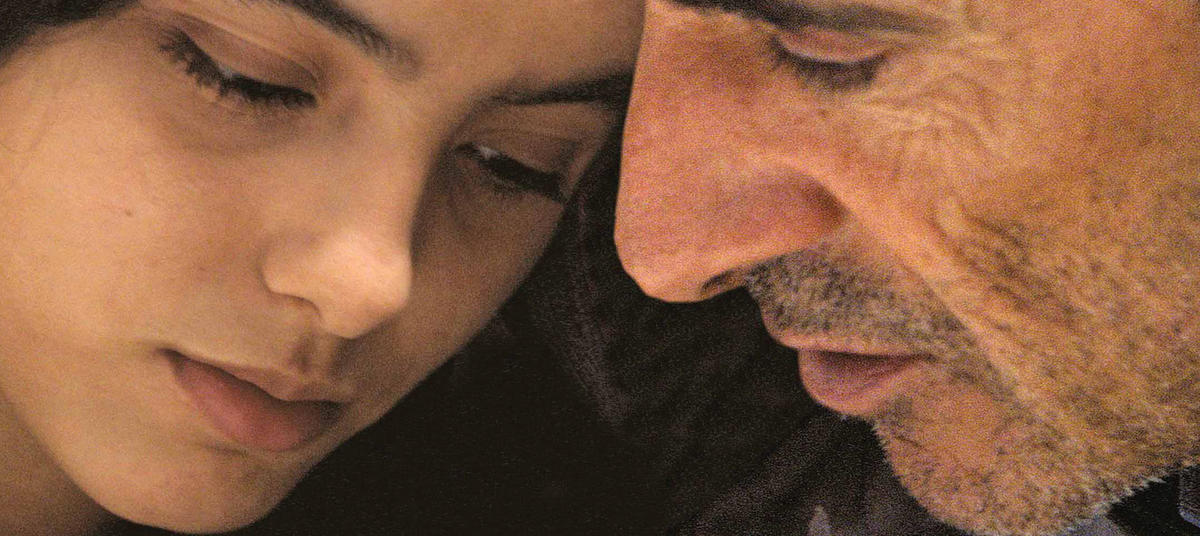
Perhaps the strongest manifestation yet of the Arab influx currently transforming French cinema from within, Abdel Kechiche’s La Graine et le Mulet made its premiere in September at the Venice Film Festival, a timing that seemed both auspicious and appropriate.
A number of American and British films looked to the East this year, attempting to grapple with the economic, social, and political consequences of the failing war in Iraq. The most noteworthy of these, Brian De Palma’s independent drama Redacted, sought to reconcile a structuralist narrative strategy with an unabashedly humanist agenda. Like Kechiche’s film, the result is ambitious, flawed, and provocative. Both works have inspired fervent debate.
Appropriately, it was in Venice seven years ago that the Tunisian-born Kechiche first came to attention, with his debut feature La Faute à Voltaire. That drama, about the travails of a Tunisian émigré attempting to eke out a living in Paris, immediately declared him a talent to watch — a promise confirmed by 2003’s L’Esquive, which audaciously transposed a classical French text (an eighteenth-century comedy of errors by Marivaux) onto the sensibilities of a group of young immigrants in an inner-city high school. The result won a César for Best Film.
La Graine, however, is a very different work, in terms of sensibility if not aesthetics. Kechiche’s “invisible” style (essentially, an appropriation of vérité techniques, influenced equally by the Maysles brothers and Ken Loach) remains unchanged; his canvas, though, is noticeably broader, and his ambitions are more pronounced. The story of a Maghrebi émigré’s attempt to open a restaurant in a decaying port town in Southern France, La Graine proceeds obliquely, by implication and surmise. Much is left for the viewer to deduce. Only after an hour do connections between the various stories begin to appear; but eventually a rigorous structure becomes apparent.
Running to 151 minutes, La Graine et le Mulet reportedly was submitted in an even longer original cut for competition at the Cannes Film Festival, whose selectors admired it but expressed concerns about its length. Kechiche refused to shorten it, and consequently the film was rejected. For Venice, he reluctantly trimmed some twenty-five minutes — yet the result still feels long; it could well lose another twenty-five, without any harm either to its structure or its flow.
Nevertheless, what is there seems intensely, vividly real, steeped in the chaos and tedium and euphoria of daily life in a way that other films in competition couldn’t match. There’s a sense not only of an entire community, but of the messy complexity of actual lives that exist outside the frame and continue after the end credits roll. So it was surprising that despite being heavily tipped for the Gold Lion (Marco Müller, the festival’s artistic director, made no secret of his own preference for the film), it walked away with only a Special Jury Prize, shared with Todd Haynes’s impressionistic Bob Dylan biopic I’m Not There.
Most critics were dazzled — though, predictably, its claustrophobic compositions, coupled with its narrative evasions and digressions, proved unaccommodating to all tastes. “C’est la négation du cinema!” thundered one venerable French critic, as the credits began to roll — his fury only confirming that this was, indeed, a major work. Not, perhaps, the masterpiece its more ardent supporters claimed, but an undoubted landmark in the development of postcolonial French cinema.
By contrast, De Palma’s Redacted is very much a work from the outside looking in. The film follows a group of American GIs, stationed in Samarra, who react to the death of their commanding officer, courtesy of a roadside IED, by gang-raping a fifteen-year-old Iraqi daughter and slaughtering her family.
Such a horrific chain of events should constitute sufficient grounds for drama. Yet, ever the stylist, De Palma couldn’t resist complicating the story with devices. Thus, the whole film is comprised of imitation found footage (a video diary, CCTV tapes, an Arab cable-news channel, Islamic fundamentalist websites), thereby enabling the director to mimic — and critique — various “ways of telling” in this modern age.
The result is a mess. Scenes play clumsily, or too long, as the soldiers confront each other and argue their respective cases — their speeches are awkwardly didactic and laced with weirdly unconvincing profanity. The effect is like witnessing improvisation workshops by amateur New York actors.
This was, in some ways, to be expected. De Palma has long been disinterested in the niceties of performance — the acting, for him, typically runs a poor second to the meticulously conceived set-pieces for which he’s renowned. On this occasion, the effect of that priority is ruinous. Not one note, somehow, seems to ring true. And in failing to work as a movie, Redacted also surrenders its moral argument.
Once more, Iraqis are treated largely as inscrutable Others, providing a convenient backdrop to the real story, that old chestnut, the loss of American innocence. In this way, the film endorses the classic arrogance of Hollywood cinema, treating the mysterious East simply as a blank screen upon which to project Western anxieties and preoccupations. The film’s one attempt to “understand” the locals (through a fake French arts documentary titled Barrage) is ridiculed, dismissed as a laughably naive attempt to address a far more complex, perhaps even insoluble, problem.
What, then, is Redacted? Needlessly overelaborated, oddly disconnected, it plays like nothing so much as a lesser reworking of one of De Palma’s own earlier fi lms, 1988’s Casualties of War. (One of the characters in Redacted even videotapes the action — not out of any desire to enshrine the truth, but instead to make a show-reel that he hopes will get him into film school back home.) While galvanized by current events, and genuinely outraged by America’s involvement in an illegal war, Redacted never manages to transcend technique. De Palma has made yet another movie about movies — this time, about his own.